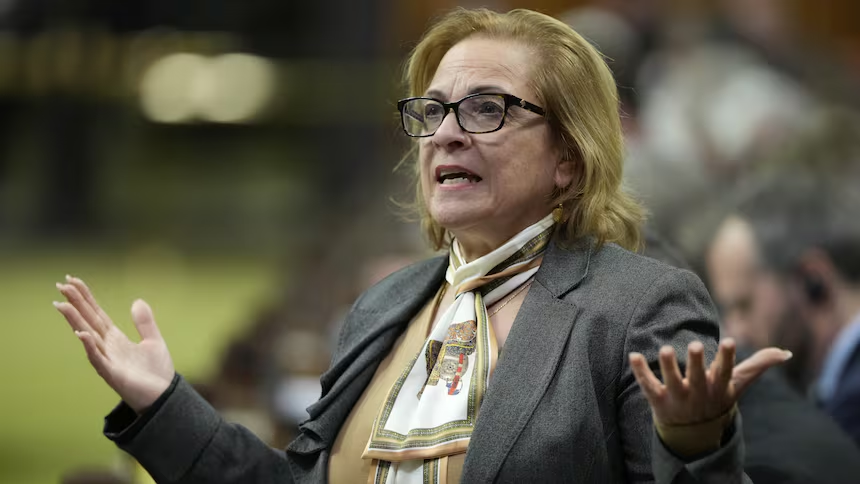The federal government’s push for new powers to cancel groups of visas may be driven less by pandemics or wars — and more by concerns about visa fraud originating from India and Bangladesh, according to internal government documents obtained by CBC News.
A departmental presentation prepared for the office of Immigration Minister Lena Metlege Diab shows that Immigration, Refugees and Citizenship Canada (IRCC), the Canada Border Services Agency (CBSA), and unnamed U.S. partners have formed a working group to identify and cancel fraudulent visitor visa applications. The presentation refers to India and Bangladesh as “country-specific challenges”, raising the possibility of targeted, mass visa cancellations.
While Minister Diab has publicly said the powers would only be used in the event of a pandemic or war, the internal presentation outlines a third scenario: cancellations involving specific countries.
The proposal was initially included in Bill C-2, Ottawa’s sweeping border legislation, and has since been folded into Bill C-12, which the Carney government hopes to pass quickly.
Concerns Over Discrimination and Transparency
Civil society groups have reacted sharply to the plan. Over 300 organizations, including the Migrant Rights Network, warned that such powers could pave the way for a “mass deportation machine” and give the government the ability to cancel visas for entire groups of people without sufficient oversight.
Immigration lawyers have also raised alarms that the powers could be used to quietly manage Canada’s massive visa backlog rather than to respond to emergencies.
The presentation cited a surge in asylum claims from Indian nationals, jumping from fewer than 500 per month in May 2023 to about 2,000 by July 2024. It also reported that verifying temporary resident visa (TRV) applications from India has slowed processing times — from an average of 30 days in 2023 to 54 days in 2024. Meanwhile, approvals dropped from 63,000 in January to 48,000 in June, as more resources were diverted to fraud detection.
Officials also noted an increase in “no-boards” — passengers in India blocked from boarding flights to Canada — with 1,873 people flagged for additional screening by the end of July 2024.
Government Defends the Proposal
In response to CBC’s findings, IRCC said the proposed powers are not aimed at any “specific group of people or situation,” emphasizing that decisions “would not be taken unilaterally.” It added that each mass cancellation order would require approval by the Governor in Council and publication in the Canada Gazette, detailing who would be affected, the reasons, and any exceptions or refunds.
The department also said it has taken “concrete steps” to combat border fraud and illegal crossings, including tighter scrutiny of visa applications from countries with high rates of abuse. It claims those measures have led to a 97 per cent drop in illegal U.S. border crossings by foreign nationals since mid-2024, a 71 per cent decrease in asylum claims from TRV holders, and a 25 per cent increase in fraud-related visa refusals this year.
Diplomatic Sensitivities with India
The revelation comes at a delicate time for Canada-India relations. The two countries have been cautiously rebuilding ties following the 2023 controversy over the alleged involvement of Indian agents in the killing of Sikh activist Hardeep Singh Nijjar in British Columbia — an allegation New Delhi denies.
In June, Prime Minister Narendra Modi visited Canada for the G7 summit in Alberta at the invitation of Prime Minister Mark Carney, signaling a tentative thaw in relations. Both nations have since reinstated their high commissioners and pledged to work toward a new “strategic roadmap.”
However, the possibility of country-specific visa cancellations could once again test that fragile reset. Neither IRCC nor Global Affairs Canada has explained why India and Bangladesh were singled out in the internal presentation or whether those provisions have been discussed diplomatically.
For now, Ottawa insists the proposed powers are about efficiency and security — not geopolitics. But critics argue that without clear safeguards and transparency, such authority risks undermining Canada’s reputation as a fair and open destination for newcomers.

